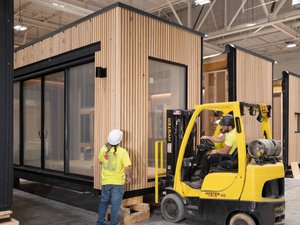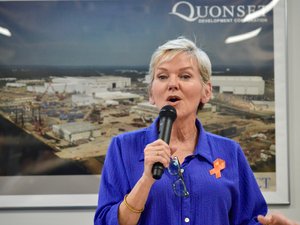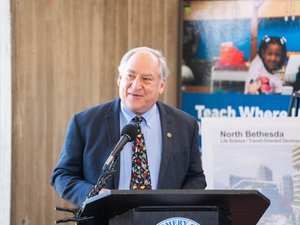Don't tell the kids — Secret Agent Mia is really a robot.
Mia is the ponytail-clad, book-loving, machine-intelligence-powered face of a young D.C. startup, Mia Learning, trying to promote literacy and decision-making in kids.
The app helps students in grades two through six make their own decisions about books they want to read independently. Kids chat with Mia through a voice interface platform that asks them about what sort of books they want to read, assesses their reading level and then makes recommendations to them based on their responses.
Teachers can access the program to see what books are being chosen and input reading achievement progress for each student. They can also nudge the system to recommend books around certain topics, complimentary to what they are learning in school. If they have a unit on the rainforest, for example, teachers can request that Mia recommend books about them.
Parents then have the option to sign up for a monthly subscription service, which sends out a list of book recommendations with the option to purchase through the platform. Co-founder and CEO Darren Cambridge said that book purchases will make up the initial revenue source for their first year or so. After that, he hopes to sell enterprise licenses to schools and school districts.
"What we know from research on literacy [is that] kids need the ability to choose their own books to be really motivated to read, and if kids get to choose those books and then own the books they choose, it's a huge motivation to be a lifelong reader," Cambridge said.
Cambridge thought of the idea for Mia Learning about a year ago, while doing some consulting work for BookTrust, a Denver-based nonprofit that promotes literacy and book choice in kids from low-income families.
"What I did for them was a real deep dive into the research literature on reading and motivation for kids in this age range, and I came out of that really convinced that there's very strong — the strongest kind of experimental evidence — that choice and ownership really matter," he said.
After quitting his job as Director of Policy Research and Development at the National Council of Teachers of English, Cambridge committed to Mia Learning full-time in March, and brought on his co-founder and Chief Technology Officer Kathleen Perez-Lopez. He kept the program here in D.C., where he's lived for 15 years, even becoming a part of social entrepreneurship accelerator SeedSpot's inaugural D.C. cohort.
Cambridge said they've raised around $60,000 from friends and family, and will likely open a seed round sometime in the fall, when they launch a national-scale beta of the app.
They'll use data from a pilot program last spring, when second graders at the Creative Minds International Public Charter School in D.C. got to test Mia out, to re-evaluate the app and inform the coming beta launch.
While artificial intelligence companies certainly aren't hard to come by, Cambridge says that Mia Learning is the only one that uses it to offer more choices to students, instead of letting them come to rely on technology to make them for them.
"A lot of the things that I'm seeing come into the market that use this machine-learning AI does it in a way that all you have to do is sit, and do what they say, and you'll learn really quickly," he said. "It doesn't build the kind of self determination skills and autonomous decision-making and self-regulation that are really necessary to succeed in the environments that kids need to go out into... that's a real danger with this technology."
But that's what makes Mia Learning unique, he said.
"[Kids] need to make their own choices and be supported in those choices," he said. "That's what we're really about. We're a choice company."
Image used via CC By 2.0 - Credit Zach Chisholm




